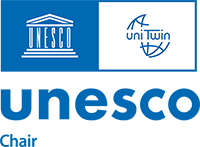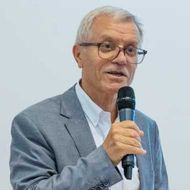- A
- A
- A
- ABC
- ABC
- ABC
- А
- А
- А
- А
- А
- HSE University
- UNESCO Chair on Future Studies
- News
- HSE University First Vice Rector Co-Authors 2021 UNESCO Science Report
-
-
Education
-
Science
11 Myasnitskaya St., Moscow
+7 (495) 621-28-73
issek@hse.ru
Meissner D., Zhou Y., Fischer B. et al.
Technological Forecasting and Social Change. 2022. Vol. 178.
Abdrakhmanova G., Vasilkovsky S., Vishnevskiy K. et al.
M.: National Research University Higher School of Economics, 2022.
Saritas O., Burmaoglu S., Ozdemir D.
Futures. 2022. Vol. 137.
Sokolov A., Shashnov S. A., Kotsemir M. N.
In bk.: BRICS Comprehensive Innovation Competitiveness Report 2020. Scientific and technical documentation press, 2021. P. 36-98.

HSE University First Vice Rector Co-Authors 2021 UNESCO Science Report

On June 11, UNESCO held a ceremony to launch its new UNESCO Science Report, which arrives at a crucial moment as countries reach the halfway mark of meeting the UN’s Sustainable Development Goals by 2030. The Report shows that, over the past five years, countries of all income levels have begun efforts to transition to economies that are both digital and green. At the ceremony, six of the Report’s authors provided overviews of trends in their regions. Representing the East European region was Professor Leonid Gokhberg, First Vice Rector of the HSE University and Director of the HSE Institute for Statistical Studies and Economics of Knowledge (ISSEK).
The UNESCO Science Report, entitled ‘The Race Against Time for Smarter Development’, covers the world in 23 national and regional chapters, and is written by 70 authors from 52 countries. The seventh instalment of a series, the report provides a comprehensive look at policies and problems among countries in response to climate change, diminishing biodiversity, and the spread of infectious diseases such as COVID-19. In particular, it documents the extent to which countries have been nurturing science systems over the past 5 years.
In her introductory message, UNESCO Director-General Audrey Azoulay highlighted that the report comes as a crucial moment.
When there is an epidemic, it is scientific knowledge that is the real antidote, as well as global coordination
She stressed that, with 70 contributing authors from all over the world, the report is the culmination a real Herculean effort. Moreover, it serves as a crucial instrument to compare policies and problems among countries.
Challenges on Multiple Fronts: COVID-19 and Climate Change
In her keynote speech, Shamila Nair-Bedouelle, UNESCO Assistant Director-General for Natural Sciences, summarised some of the report’s findings and related challenges. The report, she said, bears witness to how science systems around the world have reacted to the COVID-19 pandemic. ‘It shows that the pandemic has spurred an unprecedented level of collaboration between public and private sector entities, which culminated in the development of the first COVID-19 vaccines in record time,’ she said. The report also shows that new technology, artificial intelligence, big data, and blockchain are finding new applications in a range of sectors, such as government, finance, agriculture, and education.

In terms of developing greener economies, Assistant Director-General Ms. Shamila Nair-Bedouelle noted that phasing out harmful industries in favour of wind power and other environmentally friendly industries to achieve carbon neutrality presents a global challenge. Economies will have to transition into those that emphasise recycling, repairing, and reusing. While the report found that lower- and middle-income countries are publishing the most research proportionally on sustainability topics, it also showed that countries still have a lot of work to do in achieving the UN’s sustainability goals (adopted in 2015). ‘To reach [these goals], we need to adopt a coherent policy approach with policies for agriculture, for industry, infrastructure development, energy, and other priority fields,’ she said.
‘You only need to look at the interconnectedness between ecology, health, and economics during the pandemic to understand the importance of taking an integrated, long-term approach to development planning,’ she said. ‘We shall see in the next UNESCO Science Report in 5 years’ time whether countries have risen to this formidable challenge.’
Scientific Research and Collaboration
Susan Schneegans, Editor-in-Chief of the UNESCO Science Report, also highlighted key findings of the report, which are summarised in a video designed to reach a wider audience. Countries have made strides, but roadblocks remain. Global research spending has grown faster than the global economy since 2015, but that almost half of this growth (44%) has occurred in China alone.
80% of countries still spend less than 1% of their GDP on scientific research, and companies in developing countries still import much of their technology rather than developing it on their own.
Governments around the world are taking measures to stimulate homegrown technological development with tech incubators and tax incentives. Tech incubators, for example, are now widespread in Africa. Moreover, in many countries, the number of researchers per million inhabitants has grown by at least 20%. Researcher density has increased most rapidly in lower income countries. Scientific publications have increased globally by 21%, though G20 countries still account for 90% of publication activity. Nonetheless, high-income economies’ dominance of sustainable energy research is shrinking. International collaboration is increasing, which bodes well for tackling global challenges, such as climate change, biodiversity loss, and infectious diseases like COVID-19.

Russia and Eastern Europe
Six of the report’s authors provided overviews of the trends in their respective regions. Reports were given on Western Europe and North America; Eastern Europe; Latin American and the Caribbean; Asia and the Pacific; the Arab States; and Africa. Leonid Gokhberg, HSE University First Vice Rector and Director of HSE ISSEK, presented the report’s key findings for the region of Eastern Europe, including the Russian Federation.
Prof. Gokhberg began by emphasising that governments in Eastern Europe and the post-Soviet space are making strides to foster innovation in their countries with tax incentives and other measures. Countries such as Albania, Azerbaijan, and Serbia have been opening new tech parks, and countries are working to expand their digital economies and utilize e-governance.

Leonid Gokhberg
In Russia, in order to reduce dependency on raw material exports, the government is seeking a new economic model that will allow to reap the rewards of the fourth industrial revolution through large-scale, mission-oriented national projects that were adopted until 2024 and focus on innovation and science industry collaboration. These projects are heavily aligned with the UN’s goals for sustainable development.
The First Vice Rector also reported that Southeast Europe and Russia are developing a place-based approach to innovation in order to concentrate resources in priority sectors in regions and to strengthen links between science and industry. In Russia, for example, the federally mandated National Project for Science aims to establish world-class research centres in various regions of Russia and spur collaboration with local companies and neighboгring regions. Other countries in the region, such as Serbia, Bosnia-Herzegovina, Macedonia, and Albania, have also invested in similar strategies.
0.99 %
Research spending as a share of Russia's GDP in 2018
20%
Share of Russian companies engaged in technical innovation in 2018
8357
Russian publications on materials science in 2019, the biggest cross-cutting strategic technology
44%
Share of Russian researchers 39 years or younger in 2018
Source: UNESCO Science Report
A particular domestic challenge Russia has sought to address is employment in science and technology.
‘Confronted with the drop in the population of researchers, the Russian government has succeeded in pledging to raise remuneration by 2018, and this has already helped to attract more young researchers to the profession.’
There is also the challenge of researchers leaving the country, as is observed in Serbia, Bosnia-Herzegovina, Albania, and Macedonia. ‘However, Serbia has already met its goal of increasing spending on research to 1% of its GDP, so this will likely help to counter this problem,’ he noted.
Central Asia, Prof. Gokhberg said, is also making strides to increase research spending and international scientific collaboration in order to bolster the public profiles of local research projects. Countries in Central Asia have increased grant awards as well as university salaries and student scholarships.
In addition to implementing programmes to ramp up scientific research, countries of the region are working to implement sustainable development. Southeast Europe is transitioning to a low carbon energy sector in accordance with a sustainability charter adopted in 2016. In Russia, major energy companies have signed on to Russia’s National Project for Ecology by investing in technology and reducing the share of coal and petrol in the overall energy balance. Central Asian governments, meanwhile, are investing in green finance with their global partners including the World Bank, EBRD, and the Green Climate Fund, in order to meet growing energy demands.
The UNESCO Science Report was begun in 1993 under the name of World Science Report. Since then, UNESCO has published seven reports in the series. The series tracks support systems for science, technology, and innovation worldwide over time. Key emerging trends are identified and placed within their socio-economic and political context. Each report begins with an overview of global trends. HSE researchers Leonid Gokhberg and Tatiana Kuznetsova prepared material on Russia for the 5th and 6th editions of the Report as well.
The next UNESCO Science Report will be released in 2026. Watch a recording of the launch ceremony for the 2021 report here.
Source: HSE University website
Leonid Gokhberg
Director, Institute for Statistical Studies and Economics of Knowledge
Tatiana Kuznetsova
Academic Supervisor at HSE ISSEK Centre for Science, Technology, Innovation and Information Policy
- About
- About
- Key Figures & Facts
- Sustainability at HSE University
- Faculties & Departments
- International Partnerships
- Faculty & Staff
- HSE Buildings
- Public Enquiries
- Studies
- Admissions
- Programme Catalogue
- Undergraduate
- Graduate
- Exchange Programmes
- Summer Schools
- Semester in Moscow
- Business Internship
-
https://elearning.hse.ru/en/mooc/
Massive Open Online Courses
-
https://www.hse.ru/en/visual/
HSE Site for the Visually Impaired
-
http://5top100.com/
Russian Academic Excellence Project 5-100
- © HSE University 1993–2025 Contacts Copyright Privacy Policy Site Map
- Edit

